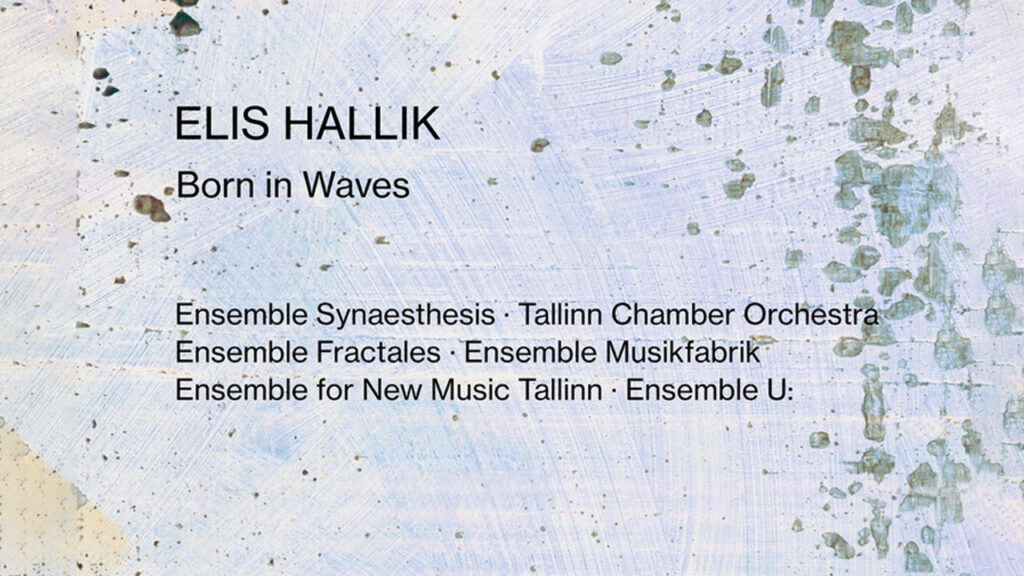Review on Kairos CD Born in Waves
“When listening to contemporary serious music, the audience is always in danger of being disappointed. We expect something radically new that will shake up the ideas of what music is; but if we get it, it’s hard to deal with it and decide whether it’s an innovation or a failure. More often, however, it happens that we can classify new compositions under already known procedures and we realize that even “avant-garde” has become a genre with known formulas.

The compositions of the young Estonian composer Elis Hallik on her first profile album can roughly be classified under spectralism; they remind me most of the specifically Romanian spectralist school around people like Ştefan Niculescu. Spectralism is methodologically based on the scientific analysis of the acoustic properties of sound, which for him are the basis of composition. However, the compositional method is not as important as the aesthetic result – compositions based on continuous dense hums, over which the instruments resound in their often unnatural and extreme positions, flow into each other according to the inherent requirements of the sound.
Hallik’s chamber music is spectralist from an aesthetic point of view, and what makes her compositions extraordinary is not so much the impression of a specifically personal expression, but rather how effectively and accurately she follows the cues of the sound itself. For example, in To Become a Tree (2016), the bass clarinet flows into the flute through interludes in the cello and violin, while the piano seems to play off the reverberations of these instruments in an unexpected but immediately understandable way.
Doch manchmal erhellt sich die Seele… (2019) is nominally a song for soprano, but the soprano naturally melts into flute and electronics. In Impacts (2014), the cello and double bass resonate not in drawn-out notes, as one would expect from them, but in coordinated echoes of blows. Stocheia (2015) begins with gestures announcing a concerto for two violins and a string orchestra, but the solo violins gradually become more like occasional protrusions in the sound mass.
The latest track, Above (2022), plays out the timeless spectral harmony most effectively. A throbbing, meandering drone with no beginning and no end that lasts eight minutes but might as well last eight hours. Maybe some of the formulas are familiar, but there is no reason for petty teasing, because to follow the sound so intimately and consistently with Hallik is unique and brings nothing but pure joy.
Elis Hallik: Born in Waves (Ensemble Synaesthesis / Ensemble U: / etc.). KAIROS, 2023.”
Michal Lipták
The original review is from here: https://kapital-noviny.sk/born-in-waves/
